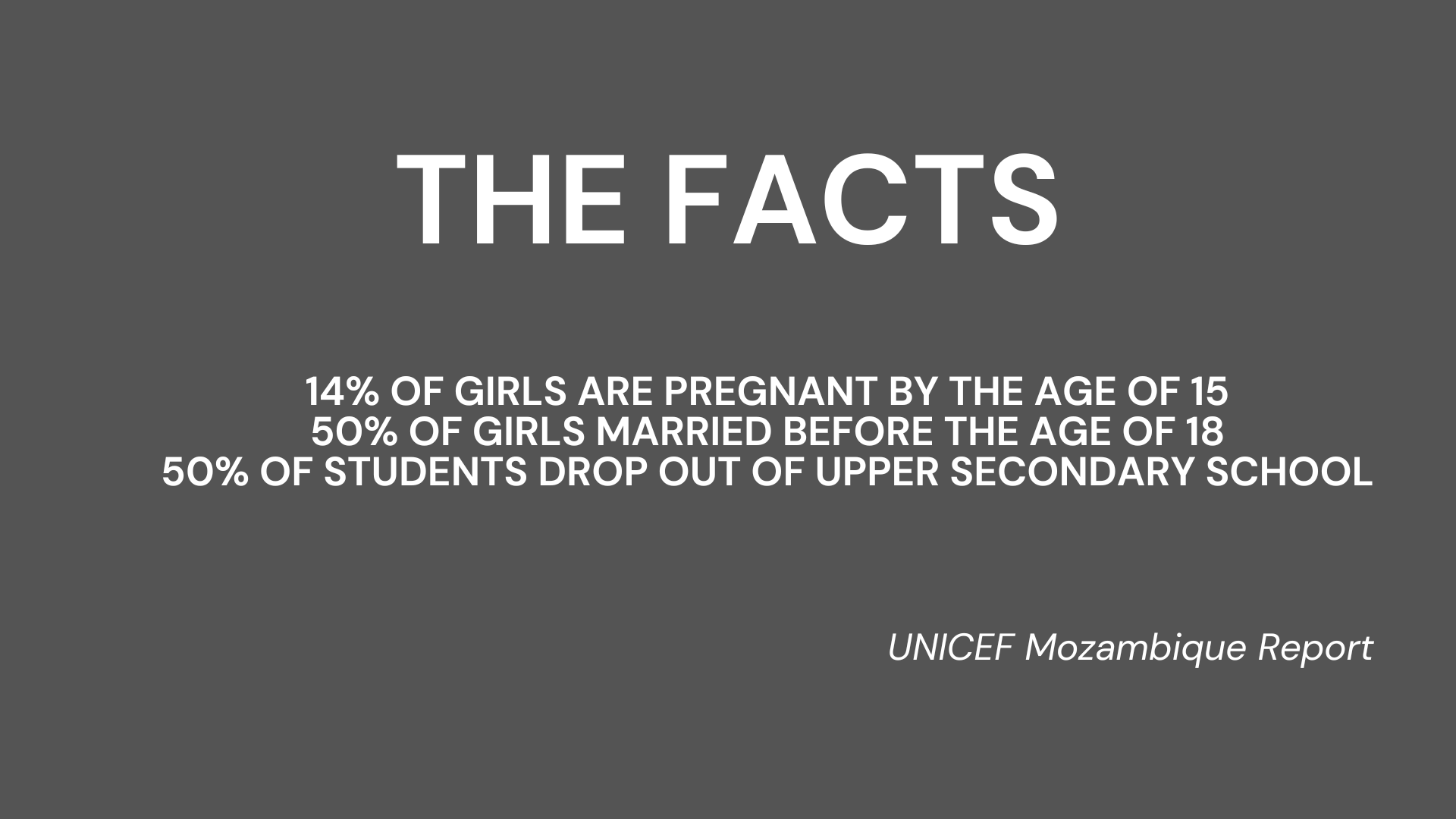
Our initiatives are informed by the pressing needs identified in the UNICEF Mozambique 2022-2026 Strategic Plan and are designed to create sustainable, long-term benefits for both the youth and their communities.
Why does the gender gap exist in Mozambique?
How it came to exist
In Mozambique, the gender gap begins early. Illiteracy rates are highest amongst girls. Girls are often forced to drop out of school. School is a long distance from home, and parents don’t see the value. Girls from poor families are “invited” to get married, and the opportunity ends there for girls to make independent decisions about their lives. Forced into early marriage and early pregnancy, many girls enter a life of poverty and a positive HIV diagnosis. 46% of girls are HIV positive before the age of 18. Only 1% of girls who enroll in primary school in Mozambique complete a college degree
The Impact on Girls
The early gender gap and the pernicious cycle of forced marriage, early pregnancy, poverty, and HIV have a devastating impact on Mozambican society. We know the opposite, however, is also true: when the gender gap is closed, girls stay in school, they lead healthier lives, live longer, marry later, and have fewer children. Their future incomes are increased, and their potential outcomes in life are better. In turn, entire sectors are strengthened and achieve better outcomes as well.
Our Strategy
The Clarisse Machanguana Foundation works throughout Mozambique to create educational programs, opportunities, and job skills for the country’s youth, to reduce and ultimately eliminate this cycle. We focus our efforts on girls, while also engaging with those who play a key role in the lives of girls, including fathers, brothers, uncles, friends, and community leaders who are key influencers. Through education and sports, youth become agents over their own lives. They attain skills that enable them to make choices that benefit them, their families, and their communities.
